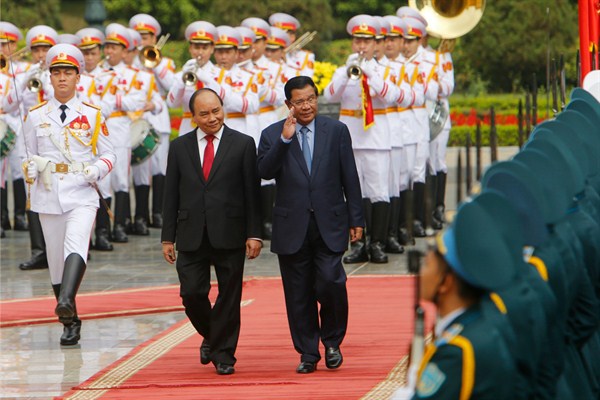For over three decades, Cambodia’s prime minister, Hun Sen, has ruled his country without any sign of ever wanting to give up power, despite growing indications that Cambodians want him to. As the country prepares for elections, he has begun his most ruthless campaign yet to consolidate his position as a strongman and undermine his opponents to ensure his own political survival. The resignation of the country’s longtime opposition leader is just the latest indication of the heavy price that Hun Sen is exacting on Cambodia’s domestic politics and foreign policy.
Since coming to power in 1985 with Vietnamese support following the brief but brutal reign of the genocidal Khmer Rouge, Cambodia’s cunning one-eyed premier has skillfully played his domestic opponents against one another and extracted support and resources from his neighbors to preserve his power. Though Hun Sen initially restored political stability to Cambodia and rebuilt it following the carnage of the 1970s, it has become increasingly evident that his continued rule is coming at great costs that Cambodians are less willing to bear.
The clearest sign of this was during the 2013 elections, when Hun Sen’s ruling Cambodian People Party, or CPP, lost 22 seats and registered its worst showing since 1998. The CPP was declared the winner, but polls were widely seen as corrupt, sparking widespread protests and a nearly year-long boycott by the opposition Cambodian National Rescue Party, or CNRP. As Cambodia prepares to hold local elections in June and national elections next year, Hun Sen is determined to guarantee a decisive win for himself and the CPP, no matter the backlash.

